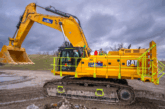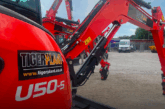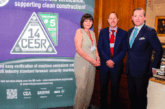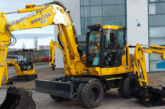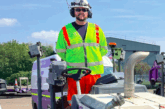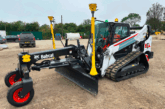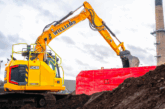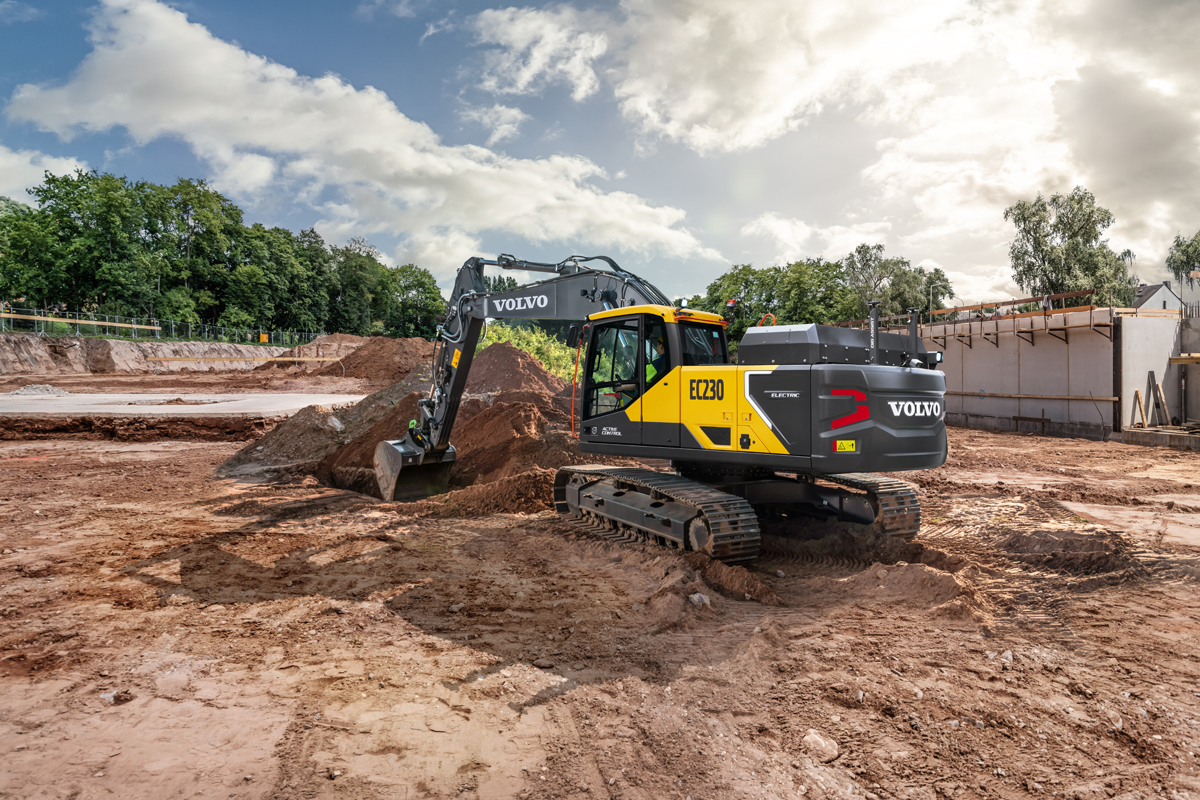
Volvo CE and its dealer partner SMT are working together and with their customers to lead the way to a more sustainable construction industry. CPN finds out more.
To truly deliver low-carbon or zero-carbon construction requires collaboration among the entire value chain. Original equipment manufacturers (OEMs), dealers, and end-users each play a role throughout the lifecycle of construction machinery to ensure it is manufactured, delivered, used, maintained, and disposed of in the most sustainable way possible.
Volvo CE, as an OEM, has long included environmental care as one of its core values and is widely considered an industry leader when it comes to sustainability. As early as 1972, former Volvo Group CEO Pehr G. Gyllenhammar said: “We are part of the problem – but we are also part of the solution.”
The manufacturer has also set interim goals to be met by 2030, including a 50% reduction in emissions from its operations, facilities, and manufacturing processes, and for 35% of its machine sales to be zero-emission electric models.
Thanks to its early work on developing concept electric machines as far back as 2012, Volvo CE today boasts one of the largest electromobility ranges in the construction equipment industry.
Close collaboration
The manufacturer has worked closely with its dealer partner SMT to launch five fully electric compact wheeled loaders and excavators in Great Britain and is now starting to introduce larger electric models to the market, such as the 20t L120H Electric conversion wheeled loader and the 23t EC230 Electric crawler excavator.
“Over the last few years, Volvo electric compact machines have proven on customer sites up and down Great Britain, that they can deliver the same performance as their diesel counterparts with the added benefits of zero emissions, quiet operation, and simpler maintenance. We are really excited to expand our e-mobility offer and further support customers on their decarbonisation journeys,” says Shaun Sisterson, e-mobility business manager at SMT GB.
SMT is supporting customers to make greener choices for their fleets and sites and is guiding them through the process. In May 2023, the dealer organised a decarbonisation event at the Volvo CE customer centre in Eskilstuna, Sweden, for 50 representatives from the construction industry in Great Britain.
All participants committed to engaging in open discussions about the challenges they encounter in their daily operations, the various future technology paths, as well as what Volvo CE and SMT GB can offer today to help companies.
The guests had the opportunity to explore a lineup of cutting-edge products, such as TARA, the autonomous electric haulage system for quarries and mines. Beyond this, the event covered training with simulators and the EcoOperator program, consultancy services including Site Simulation, as well as digital offerings. To top it off, the participants delved into fleet management and maintenance with MySMT and ProCare.
“The event enabled us at Volvo CE and SMT to engage with the industry early on in its transformation and build trust in us as the credible future partner of choice for our customers on this journey. We received very positive feedback that we are showing belief, leadership, commitment, and investment in this once-in-a-lifetime industry shift,” says Phil Battle, director of strategic accounts at SMT GB.
SMT GB recognises the importance of providing customers with first-hand exposure to groundbreaking low-carbon technologies and showcasing Volvo CE and SMT’s combined commitment to sustainability. As a result, the company took proactive measures to assess the emissions produced by the travel for the event and invested in carbon offset projects.
Low emissions, no emissions
SMT GB understands that the shift towards electric machinery isn’t an overnight switch, but rather a gradual transition. The dealer is currently focused on aiding customers in minimising the environmental impact of using and maintaining their existing diesel-powered machines that will continue to operate for many years to come.
This is achieved through enhancing operator or site efficiency, as well as through used parts and equipment rebuilds. The work undertaken at SMT GB’s Remarketing Centre at Bruntingthorpe is helping to ensure that materials are kept in the value chain for longer, by offering quality used parts and equipment for customers who are interested in minimising their environmental impact and carbon footprint.
Enhancing the efficiency of diesel machines isn’t just about saving on fuel and reducing emissions in the present, it’s also about laying the groundwork for that eventual switch to battery-electric equipment. With battery-electric machines, operators cannot simply afford to be inefficient as it directly impacts battery range and necessitates less-than-optimal charging routines.
“We at Volvo CE and SMT GB are not just leading the industry’s journey towards net zero, we’re taking our customers along with us. We’re actively listening, understanding, and collaborating to foster a more sustainable construction industry throughout the entire value chain.” Phil concludes.

